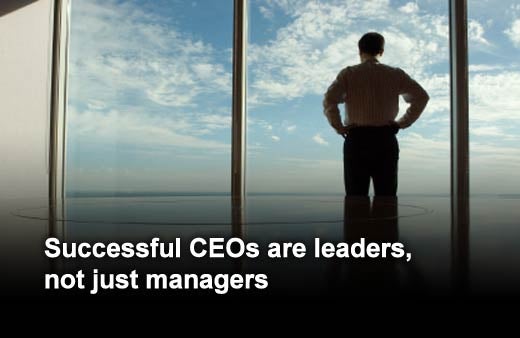
These rules define the differences between a company that is doing well, like Apple, and a company that is failing, like RIM. They anticipate the mistakes and suggest fixes to major financial, operational and PR problems the firms experience and provide a primer for anyone wanting to be successful in this segment. Many are not segment-oriented and could apply to any business at any level, but some are specific to technology.
Click through for 16 rules that can make the difference between business success and failure, as identified by Rob Enderle.
This is one of the things Steve Jobs seemed to get intuitively. Focus groups are only good (if done properly) for determining past behavior. They are worthless in determining future behavior. This is because there are too many variables in the future that you can’t control in the group. As a result, they generally just provide a way for a low-level employee to manipulate upper management into a decision or, if used without an agenda, they will generally drive the wrong decision. The rule of "garbage in, garbage out" applies here.
Most executives appear to believe they can accomplish something with the available resources they have. This is seldom true and is why most companies and most new products fail. You would think it stupid too if you saw someone with $20,000 in resources try to build Disneyland. Yet, for some reason, executives will generally take an estimated budget, cut it by some arbitrary amount or simply start without a real estimate of the cost of success, and move to plan execution. Most failed projects are massively underfunded by design.
There is a common belief that someone who is successful in one area can be successful in another. Executives are moved from sales to HR, from manufacturing to marketing, and from operations to line management and back again. People develop skills and competencies, and these skills and competencies rarely transfer well to completely different areas. You wouldn’t, for instance, take a pediatrician and toss him or her into major surgery without retraining. Yet firms make moves like this all the time and then wonder why things aren’t going very well.
Success is rarely attributed to one person, though one person may be a critical element in a team. If you don’t analyze the team before making an employee change, you will likely ensure that the team fails and the removed employee fails. This is often why CEOs who were successful in one job are unsuccessful in another. The new team isn’t equivalent in the new job and the CEO is not aware of his or her own dependencies. Successful companies are generally not made up of successful sole contributors; they are made up of successful teams where the weaknesses of one individual are offset by the strengths of another.
Perceptions surround the company and its products and can be manipulated. If you don’t manipulate the perceptions that surround your company and products, someone else may. There is a general belief that marketing is a throwaway practice to fund when there are excess funds and to cut when funds are shot. It is actually the mechanism that assures investor confidence and new buyer acquisition, and it plays a major role in customer satisfaction because it helps set expectations. It requires an expertise and can become a money hole if that expertise isn’t there. It goes beyond the paint on the car or the makeup on the woman and plays a major role in how the firm is viewed broadly.
A person with a degree (and Rob has three of them) showcases a potential for competence. A person who has demonstrated that competence is a more assured choice because that competence is proven. Three years of successfully accomplishing a task is more valuable than a Ph.D. in that task. Degrees provide status and they do enhance an individual’s income, but they don’t ensure success. Education teaches a person how to learn and provides them with a series of rules that mostly will turn out to be inaccurate or out of date in practice. It is no more than a jumpstart. Firms that focus on education in experienced employees generally pay more for lower-quality work in practice. Generally, the non-degreed competent professional will cost less and be harder to recruit away from you than his/her degreed counterpart.
There is a widely held belief that you can instrument management, whether that be measuring employees on a departmental curve — which benefits low-quality teams and penalizes high-quality ones — doing peer reviews or having the employees assess themselves — all are efforts to separate the manager from his/her role as manager. The more managers aren’t allowed to manage or delegate management, the more they drift towards sole contributors and the less effective their teams are. The justification for taking management away from managers is to prevent successful discrimination lawsuits. The problem it creates is greater than the problem it attempts to solve.
The CEO and board have to work in concert. While it is clearly good that one not be excessively subordinated to the other, in short, the board has to perform its oversight but can’t get in the way of execution. It is a balancing act that can get out of balance, and when it does, you get a lot of the drama you have been seeing at the top levels of some of the largest tech companies in the world of late. The board has a role and it is neither to polish the shoes of the CEO nor actually run the company. Forgetting that typically ends badly.
It is kind of amazing how many companies in this market and others seem to treat their customers very badly. A very few companies put massive focus on customer loyalty and get the benefits. Some firms (Google comes to mind) don’t even seem to really know who their customers are. Finding ways to engage, excite (in a good way) and create deep positive relationships with customers formed companies like IBM and helped to ensure their survival. Firms that don’t do this typically have much shorter lifespans.
It is not that top executives don’t deserve to be paid well, but that excess wealth tends to lead to behavior that is contrary to the firm’s best interest. They may have public extramarital affairs that embarrass the firm, they may play games with their expenses and they are more likely to use company assets for personal pleasures. In the end, excessive compensation becomes a distraction, making the top executive less effective and, if they flaunt that wealth (as they often do), it saps their ability to lead the company.
This is more for people who work for tech firms than those who invest in or buy for them. Though I have noticed that folks who are treated better themselves are often far easier to interface with than those who live in horrid cubicle farms (particularly late in the day). Top employees typically have a choice and many pick salary as their deciding factor, but quality of living tends to be vastly more important. Firms with good employee care tend to have fewer employee problems and people may not live longer, but they seem to want to more often. In the end, over the years, Rob has learned it really is better for life quality to pick firms that care about their employees over those that treat them like a thing to be ridden hard and put away wet.
What is amazing about this is that this tends to be both the least successful and most-common merger type largely because executives have control issues. There are three ways to gain major product assets: Buy the assets alone (generally successful), buy a successful company (keyword is “successful”) and don’t screw it up, or buy a running company and mash it into yours. It should be no surprise that integration mergers carry an 80 percent failure rate because they literally blow up a working organization, and what is amazing is that this is the default choice. Look at EMC mergers and Dell mergers: The most visibly successful are the ones that left the companies intact.
Leading means folks follow you because they want to. Managers create structures that appear to force actable behavior, but instead create bureaucracies where process trumps progress. About the same time Apple went from being managed to being led (late '90s), Microsoft went from being led to being managed. The contrast is obvious. Leaders build companies and managers contain costs. You generally can’t win a market with a cost containment strategy any more than you can win a race by weight loss alone. A leader focuses on the goal and assures the winning result and a manager is often good at showcasing success with metrics and using them as an excuse to explain a loss. Both can blindly go in the wrong direction and destroy companies. A manager is often better during a company turnaround, but market leadership requires a leader CEO who isn’t directionally impaired.
Successful VCs (venture capitalists) learn early on to accurately estimate the cost of success. Underfunding is actually more dangerous to a project than overfunding, but both should be avoided. There is a common tendency to focus on how much is available for a project or company rather than how much is required, and many of the failed products and services we see are the result of under-resourcing to a massive level. For instance, the cost of taking out an entrenched product in a head-on run (rather than flanking it) is roughly estimated at 10x of whatever the entrenched vendor is spending to secure their position in order to reach parity. Most firms that take on dominant vendors fail because they have not adequately estimated the cost of the successful engagement. By the way, if you thought this was a restatement of Rule 2, it is a different aspect of the same problem, and you were paying attention.
The success of Windows (and DOS) was the result of leveraging IBM resources; the success of Android was the result of getting the licensees to accept much of the legal and development burden. Both allowed a firm that was unwilling or unable to properly fund a successful product to be successful. This is leverage and it is rarely practiced and has the downside of reduced control, but, like the story of Tom Sawyer and painting the fence, getting others to fund most of an expensive product can provide massive returns as Microsoft itself demonstrated. Companies that understand how to use this leverage have much higher potential upside than firms that don’t.
For Rob’s last rule he picked a personal one. The most common mistake someone makes early in life is starting down a career path without first deciding what they want. He’s not talking fast cars or attractive spouses; he’s talking quality of life. Some of the richest people are also the most depressed and have to manage that depression with drugs, because their path, as lucrative as it was, took them into a life of luxury and misery. If, at any time (though the earlier the better), you can close on the aspects of life you wish to achieve, if you are like most, you’ll find you can get to them relatively quickly and better preserve them. Spend some time watching the most content and truly happy people you know (and learn to tell the difference between those who are happy and those who seem happy), and you’ll find it is often not what they do or what they have that resulted in happiness — it is how they live their lives.



















